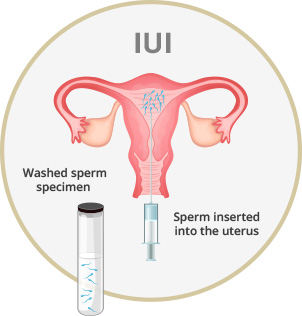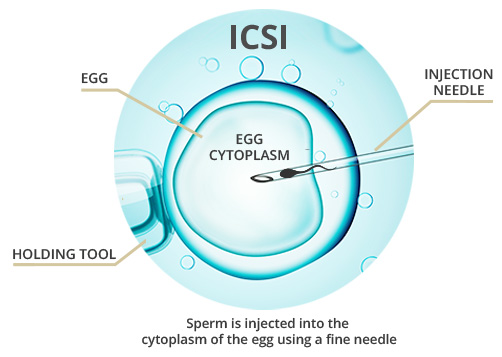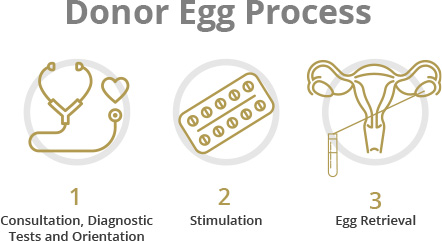What is the IVF process?
Our fertility specialists guide you through the following IVF steps:
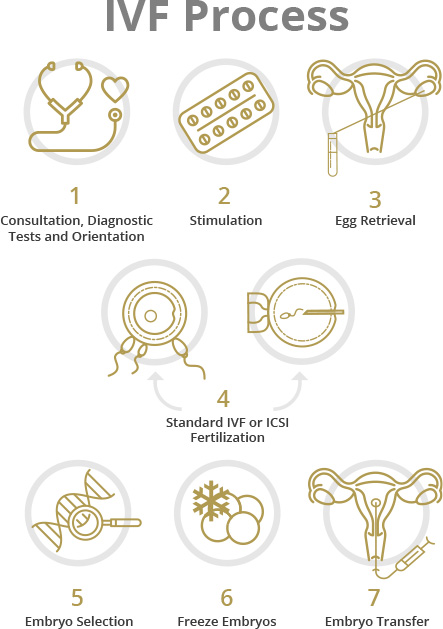
PART A
Consultation, Diagnostic Tests and Orientation: The IVF process begins with a consultation to discuss your goals and help you understand what to expect. This is then followed by diagnostic tests and orientation.

PART B
Stimulation: During ovarian stimulation, injectable medications are used to recruit follicles/eggs. Your progress is monitored by blood tests and ultrasounds every 2-3 days. When the follicles appear ready a trigger medication is used to mature the eggs for egg retrieval 2 days later.
Egg Retrieval: Using ultrasound guidance, egg retrieval is a brief surgical procedure where a needle is inserted through the vagina to access the ovaries.
Fertilization: This step can happen in two ways:
a. Standard Insemination: Insemination through IVF refers to incubation of washed sperm with the harvested eggs in a petri dish to allow fertilization. Around 30,000 sperm are incubated per egg and fertilization is allowed to occur ’naturally‘ in the dish.
b. Intracytoplasmic Sperm Injection (ICSI): A procedure where a single sperm is injected into a single egg. The rate of fertilization of mature eggs is typically 60-70% (i.e. 7/10 mature eggs fertilize).

ICSI Indications:
- Sperm parameters in a semen analysis are low
- Previous failed fertilization with standard insemination IVF
- Embryo biopsy required for genetic testing
- Long duration of unexplained infertility (> 3 years)
- Sperm is surgically extracted directly from the epididymis or testicle
- In the case of low egg numbers
Embryo Culture: Fertilized eggs are cultured in the IVF laboratory until transfer, biopsy or freezing. An intricate balance of gases and culture media choices optimizes outcomes.
Embryo Transfer or Embryo Freeze:
- Embryo Selection: Methods for embryo selection include: Traditional Morphology, Eeva and Comprehensive Chromosomal Screening (CCS) and Preimplantation Genetic Screening (PGS). Read more about the pros, cons and costs of each embryo selection method.
- Embryo Freeze: If you’re not planning to have a baby right away, embryo freezing is an excellent option. Read more about embryo freezing here.
IVF Indications:
- Tubal disease
- Severe male factor
- Diminished ovarian reserve or advanced egg age
- Long duration of unexplained infertility
- Pre-implantation genetic diagnoses or pre-implantation genetic screening/comprehensive chromosomal screening
- Previous failed treatments such as insemination, tubal surgery



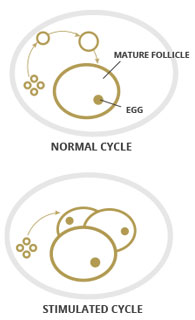 Ovulation induction is achieved with fertility pills (e.g. clomiphene citrate or letrozole) or injectable medications (gonadotropins). Injectable medications require monitoring with bloodwork and ultrasounds every 2-3 days over a 2-week period. This approach depends on the patient’s medical history and may be combined with Intrauterine Insemination (IUI).
Ovulation induction is achieved with fertility pills (e.g. clomiphene citrate or letrozole) or injectable medications (gonadotropins). Injectable medications require monitoring with bloodwork and ultrasounds every 2-3 days over a 2-week period. This approach depends on the patient’s medical history and may be combined with Intrauterine Insemination (IUI).